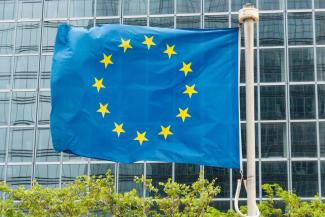Our view
More than the sum of its parts

The EU is an alliance of democracies that appreciate human rights and gender equity. The two arguably most important leaders – Ursula von der Leyen, the president of the Commission, and ECB President Christine Lagarde – are women.
The EU has a huge bearing on life in Europe, but its impact is felt around the world. It is a superpower in trade affairs, an important proponent of climate protection and, in conjunction with its members, the dominant force in official development assistance. By contrast, it remains a military dwarf.
The EU is sometimes accused of being run by unelected bureaucrats. That is vastly overblown. Yes, technocrats matter much in EU governance, but that is because the issues at stake are very complex and Europe's many different languages do not offer congruent legal and political terms. Nonetheless, the EU has clear democratic legitimacy. The European Parliament is elected, and so are the member states' governments whose leaders constitute the European Council. These institutions decide who heads EU institutions.
Nonetheless, EU policymaking can look arbitrary, particularly in moments of crisis. Sometimes, problems arise for which neither solutions nor procedures have been pre-defined. In such cases, ad-hoc summits of the national top-leaders tend to reach ground-breaking new agreements late at night after extended talks. In such contexts, one can indeed speak of a democracy deficit, since the elected legislators are not involved and it is next to impossible to undo compromises reached by the Council. On the upside, important Council decisions require broad majorities.
The EU has indeed its flaws. In the past five years, it neither handled the refugee nor the eurozone crisis well. The union is incomplete and keeps evolving. Its strong points deserve emphasis however. People move freely within it. The EU's single market provides more and greater opportunities than smaller national markets ever could. The pooling of sovereignty has entrenched cooperation in a way that safeguards peace on a continent that used to be devastated by wars. The EU gives its member states more global influence than they could individually exert. Just how useful it is became evident in the fact that it did not unravel after the Brexit referendum as stubborn nationalists had hoped. It has actually become more cohesive, while in Britain itself the doubts about leaving this alliance have grown.
EU coherence actually serves the interests of humanity as a whole. As a species, we are facing huge global challenges, from environmental devastation to worsening inequality, from mass poverty to the risk of war. Narrow-minded nationalism will only compound the problems. We need supranational policymaking – and in spite of all its shortcomings, the EU is living proof of it being feasible. It does not diminish sovereign nation states, on the contrary, it enhances their scope for achieving goals – including global ones such as the UN's Sustainable Development Goals (SDGs).
Katja Dombwoski is a member of the editorial team of D+C Development and Cooperation / E+Z Entwicklung und Zusammenarbeit.
euz.editor@dandc.eu








